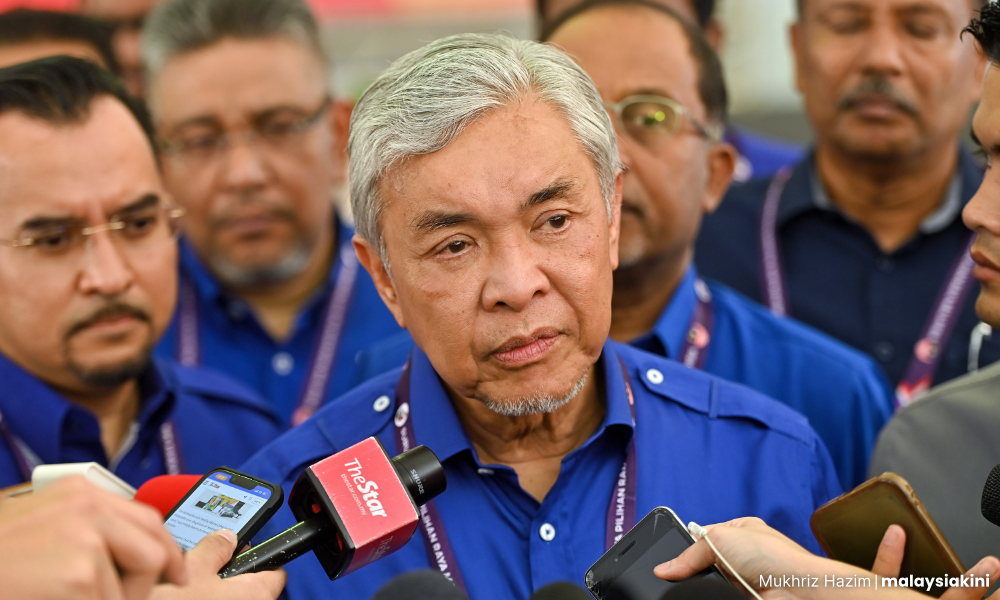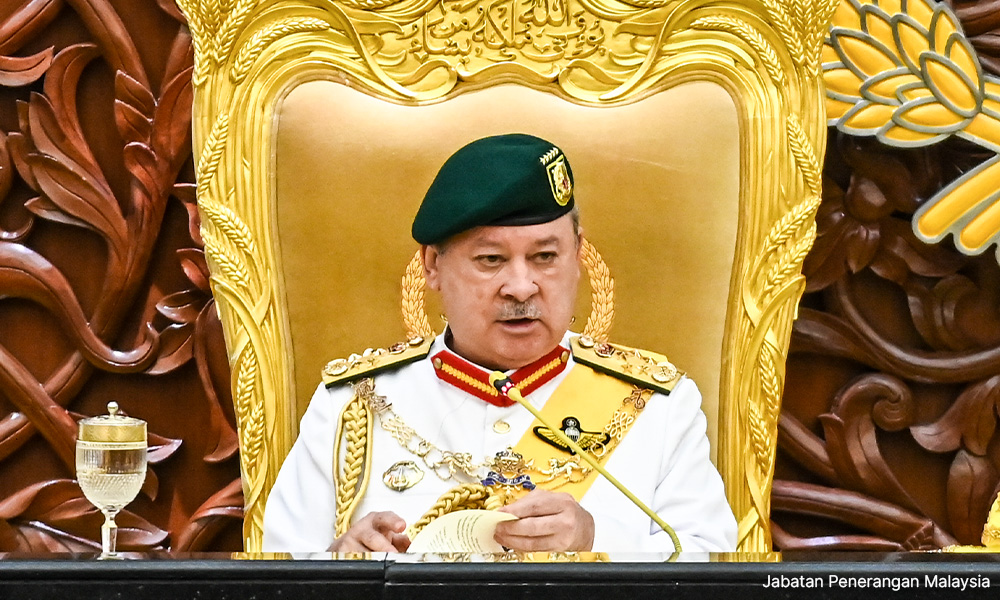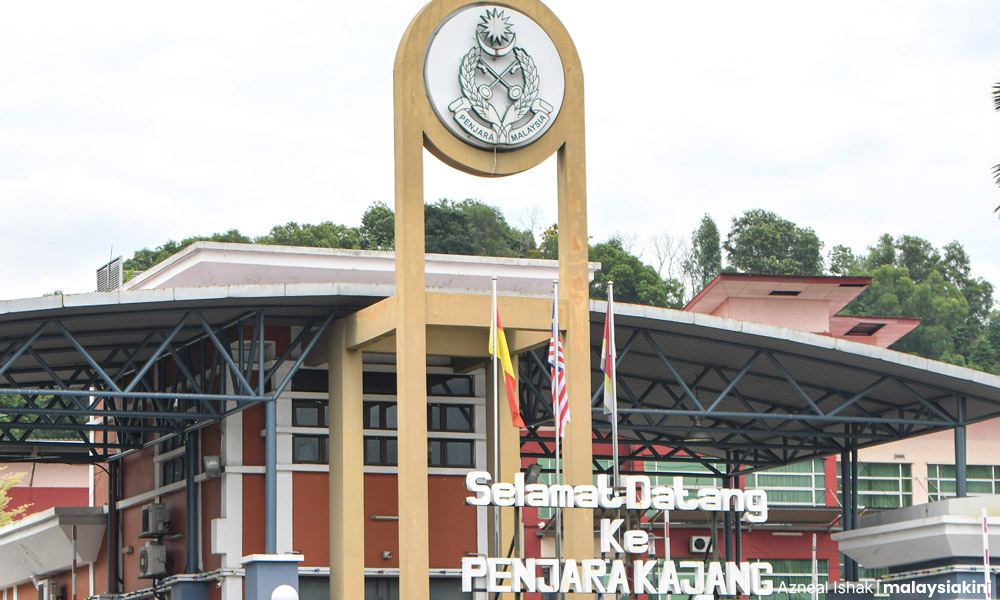The question of home detention for convicted former prime minister Najib Abdul Razak was raised again, this time in an interview titled “In Conversation With Prime Minister Anwar Ibrahim” held in Qatar.
Anwar indicated that while he considers the Yang di-Pertuan Agong’s decision on this as final, but if he was asked, he would advise the Agong to wait until Najib’s ongoing trials are completed.
That’s a good line to take, but to say it is the Agong who decides the final outcome may not be right.
We practise parliamentary democracy with constitutional monarchy. The Federal Constitution in Article 40(1) says the Agong acts on advice except where it is provided otherwise. Pardons are not listed as one of the functions where he can exercise his discretion.
The Pardons Board, headed by the Agong, has already made its decision. As I wrote in an article titled “How much more must we bend for Najib?”:
“It’s bad enough that the Pardons Board halved his jail sentence and reduced that RM210 million fine to a mere RM50 million, now (Deputy Prime Minister Ahmad) Zahid (Hamidi) has sworn an affidavit saying that the Agong consented to his house arrest in an addendum. However, that was not what the Pardons Board had decided.”

There is no reason to revisit that decision by the Pardons Board, although Najib’s lawyers are arguing otherwise in court proceedings which are not open to the public, an unnecessary veil which arouses public mistrust.
On top of that, the decision by the Pardons Board did not even follow convention where a convict has to serve at least one-third of the sentence before a pardon is even considered. Also, Najib ought to have joined a long queue waiting for pardons.
If there are any further doubts that Najib should continue his time in jail and not be put in an accelerated programme of home detention spearheaded by the corrupt Umno Baru, here are 10.
1) There is no provision for home detention
Although there are moves to create legislation which allows for home detention of certain categories of prisoners, they are not in force yet. Even if they were, Najib has already been convicted of very serious offences and faces many more charges. He is undeserving.
2) No clarity of the addendum by the previous Agong
It’s not clear if the Pardons Board was aware of this and how it came about. The situation is complicated by the relevant court deciding not to hold proceedings in public and by the denial of Tengku Zafrul Aziz’s application to the court to amend Zahid’s sworn affidavit. Thus, the Pardons Board’s decision must stand.
3) Pardons Board’s decision can’t be amended
The board has made a decision and it must stand. The previous Agong headed the Pardons Board but the decision was collective. Najib’s pardon application was heard and a verdict was given. For better or worse, it cannot be reversed.
4) Fast-tracking his pardon application is wrong
Despite the pardon application being heard, the process was wrong. It came too soon - before he had served even two years. There were others ahead of him in the long line. And Najib never expressed regret or repentance but said he did not receive a fair trial.
5) Whether Agong has absolute power of pardon is debatable
In a constitutional monarchy, the Agong does not have absolute power but follows advice except for some functions which are clearly spelt out. The pardon process is not one of them.

6) Najib faces other serious charges
Najib faces further criminal charges and civil action, all of which involve sums in the billions of ringgit. It would be a waste of time and resources to keep revisiting past issues and making decisions which may have to be reversed further on.
7) Convictions and charges imply major damage to the country
One thing that Umno has ignored over and over again in their premature, persistent push for a pardon for Najib and rather inappropriate home detention for very serious offences including corruption and money laundering, is that these offences have done very serious damage to the country.
8) There are no redeeming factors
Najib sacked Umno senior leaders and key enforcement, regulatory, and investigative officials to keep things under wraps. If he had not lost power in the 2018 general election he would have continued in his ways to inflict untold damage to the country. He has few if any redeeming factors.
9) It will set a bad precedent and example
It is said that politicians take care of their own kind. This is exemplified in Najib’s case when virtually the entire leadership of Umno and then some in other parties are backing the efforts for a pardon and home detention. That will set a bad precedent and example for the entire country and encourage similar activities.

10) It circumvents all legal principles and the law
The basic principle of the legal system is the rule of law and that everyone is given a fair trial and reasonable attempts to present their case. That has been given to Najib, in fact, much more so than a normal person.
If he is given special privileges and dispensation, the entire legal system collapses and will encourage others to transgress the law, knowing there are avenues to circumvent legal principles and even the law by abusing other procedures such as pardons.
There are many more reasons. But these 10 are more than sufficient to conclude that not only is a pardon, although done, inappropriate, but any attempt to free him into his own home where luxury is at hand and people to cater to his every whim and fancy is the very antithesis of a prison sentence. - Mkini
P GUNASEGARAM says that when all reason and sanity is abandoned, sinister forces are at play.
The views expressed here are those of the author/contributor and do not necessarily represent the views of MMKtT.




No comments:
Post a Comment
Note: Only a member of this blog may post a comment.